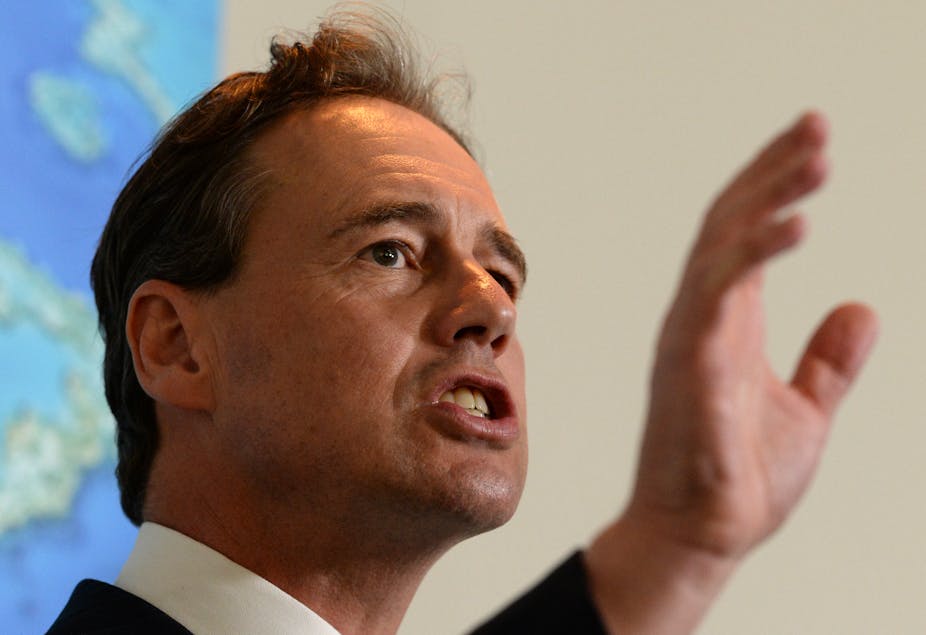Environment Minister Greg Hunt has put out feelers to Clive Palmer to try to soften his opposition to the government’s direct action plan to reduce carbon emissions.
Releasing the government’s white paper on the final design for the Emissions Reduction Fund (ERF), the centrepiece of the direct action scheme, Hunt said he had run into Palmer at Parliament House today and “we actually had a very, very friendly conversation.
"What we agreed was to catch up in the coming weeks, and he was very keen to read the paper.
"We historically have a very good relationship, and I am hopeful that we’ll have very constructive discussions.”
Hunt said he would be writing to all the crossbenchers, offering to meet and discuss the carbon tax repeal and the white paper with them.
“I am confident that we will be able to both repeal the carbon tax and to pass the funding and any enabling legislation for the emissions reduction fund.”
An exposure draft of the ERF legislation would be released within weeks for comment. The legislation would be introduced in the budget session, which starts next month, and the government would seek to pass it quickly.
By the time the legislation comes to a Senate vote, the new Senate – in which PUP has a pivotal position – will be in place.
Palmer has condemned direct action as tokenism and a waste of money and said his party will oppose it.
While Hunt insisted he was confident of getting the legislation passed, he cannot do this without the support of PUP.
The funding for the Emissions Reduction Fund is certain because it will be contained in the budget. But setting it up without a legislative base would be difficult, though the government says it could be done.
Hunt announced that the government has allocated another A$1 billion for the fund, taking the money to A$2.55 billion over four years. Previously it had committed to A$1.55 billion over three years. Further funding would be considered in future budgets.
Hunt declined to be drawn on how hard it would be to establish and operate the fund without legislation.
“I won’t speculate on the mechanisms, but I am extremely confident that under every circumstance we will implement the ERF and we will be able to implement the ERF.”
He reiterated that the government accepted the science of climate change and was firmly committed to reducing Australia’s emissions to meet its target of 5% below 2000 levels by 2020.
The direct action scheme involves paying emitters to reduce emissions. Auctions will start in the second half of this year and will be run quarterly. The government will purchase “the lowest cost genuine emissions reductions”. Payments will only be made when the contractor delivers the reduction.

